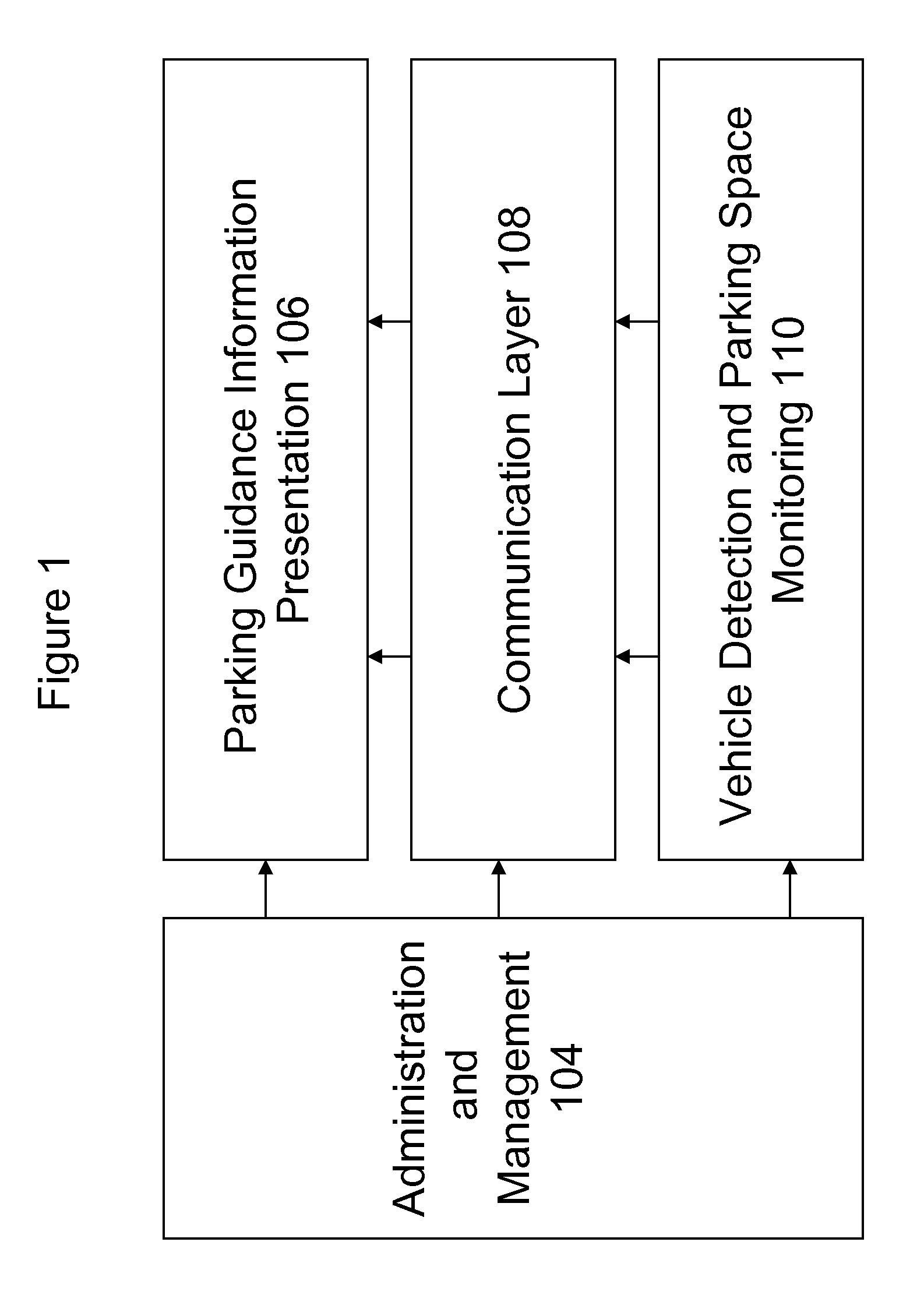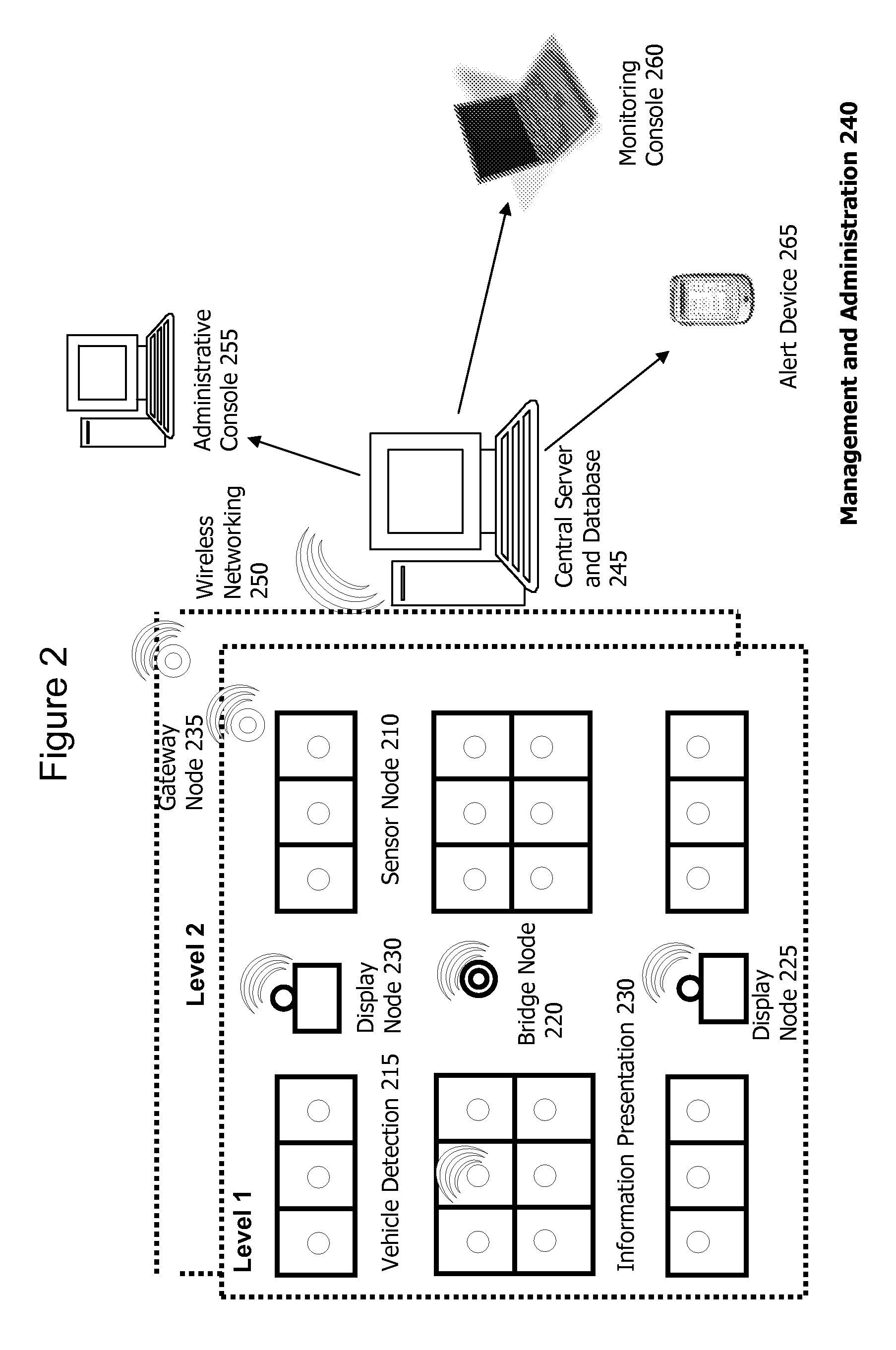Wireless Parking Guidance System
a parking guidance and wireless technology, applied in the field of parking guidance systems, can solve the problems of increasing pollution, increasing the difficulty of parking, wasting visitors' time, etc., and achieve the effects of reducing congestion in parking lots, reducing pollution, and reducing pollution
- Summary
- Abstract
- Description
- Claims
- Application Information
AI Technical Summary
Benefits of technology
Problems solved by technology
Method used
Image
Examples
Embodiment Construction
[0039]FIG. 1 shows the functional components of a parking management system. The system includes an administration and management component 104, parking guidance information presentation component 106, communication layer component 108, and vehicle detection and parking space monitoring component 110. The administration and management component interfaces with the parking guidance information presentation, communication layer, and vehicle detection and parking space monitoring components. The communication layer component interfaces with the parking guidance information presentation component. The vehicle detection and parking space monitoring component interfaces with the communication layer component.
[0040] The vehicle detection and parking space monitoring component helps identify the occupancy status of parking spaces. The communication layer component processes the space availability information and determines the relevant parking guidance information for each direction. The p...
PUM
 Login to View More
Login to View More Abstract
Description
Claims
Application Information
 Login to View More
Login to View More - R&D
- Intellectual Property
- Life Sciences
- Materials
- Tech Scout
- Unparalleled Data Quality
- Higher Quality Content
- 60% Fewer Hallucinations
Browse by: Latest US Patents, China's latest patents, Technical Efficacy Thesaurus, Application Domain, Technology Topic, Popular Technical Reports.
© 2025 PatSnap. All rights reserved.Legal|Privacy policy|Modern Slavery Act Transparency Statement|Sitemap|About US| Contact US: help@patsnap.com



